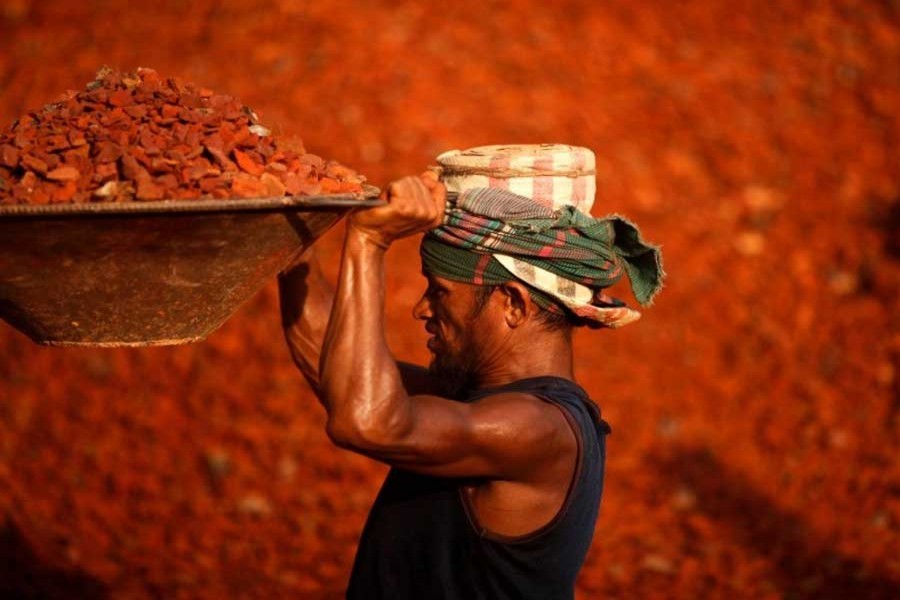The coronavirus pandemic has resulted in loss of livelihoods for many people causing untold sufferings. Most of them cannot arrange proper meals for their families. It is the low income groups and poor people who have become most vulnerable as their income opportunities are largely lost during the lockdown.
The lockdown is aimed at protecting people from being infected with deadly virus, but they are now being severely affected by another evil - poverty. As most of the daily wage earners have no sources of income, they ask themselves how are they going to survive the next day.
The lockdown has also threatened earning sources from some semi-formal sector jobs. Now, salaried workers in small private firms are also not sure if they can draw salary and run their families during the uncertain period.
In Bangladesh, more than 80 per cent of people's earnings come from the semi-formal or informal sector. With their level of income which often fluctuates, they cannot save money to get through rainy days. There are others who have no wage earning, such as people with disability, street vendors, poor widows, transgender people, sex workers and beggars. In towns all over the country nowadays, many people are seen on the streets seeking food or cash.
Workers engaged in transports, construction and repairing, workshops and small shops, restaurants, parlours and saloons, and scores of other semi formal and informal services have lost their earning opportunities due to the pandemic. Despite their valuable contribution to the economy and services to well-off people, they are the most susceptible groups and foremost victims of the corona-induced shutdown.
Losing their income, a few of them, if not many, are already crying for food and cash near market places and in residential areas of cities. We have reasons to be concerned that their conditions might be more critical in the coming days since a complete normalcy is hardly likely anytime soon.
Apart from facing the challenge of providing medicare services at this stage, the country is plagued by economic uncertainties. Although the government has arranged food and cash supports for many poor and jobless people across the country, the number of those who need help is much higher since the current disaster has increased poverty and unemployment.
In fact, it's not possible for the government alone to support the entire army of the poor and vulnerable groups in every part of the country. Some corporate houses have come up with supports for the poor.
However, a significant portion of the solvent people in the society remains silent. It may be mentioned that opportunistic selfish attitude of turning faces away from the poor will not help maintain social stability and harmony. Services of these people will be required soon. Also, the hungry people will not sit idle at home if the crisis prolongs.
In other countries private entities and charities are joining social and political efforts to effectively rescue affected people from the current disaster. Unfortunately, local public representatives in our case are reportedly not inquiring about wellbeing of the helpless people in their constituencies. Besides, there are allegations of embezzlement of relief materials.
All over Bangladesh, there are many well-off people who themselves can help people or can contact organisations and individuals who are willing to donate money for the help of those who need most. Bhupen Hazarika's popular song - 'Manush manusher jonno, Jibon jiboner jonno' (humans are meant for humans, and life for another life) - is a timely reminder for all of us in Bangladesh today. And in this month of Ramadan, believers of Islam have a duty to spend a portion of their income for welfare of the poor, at least among their relatives and neighbours.
Arif Majumder is a journalist.


